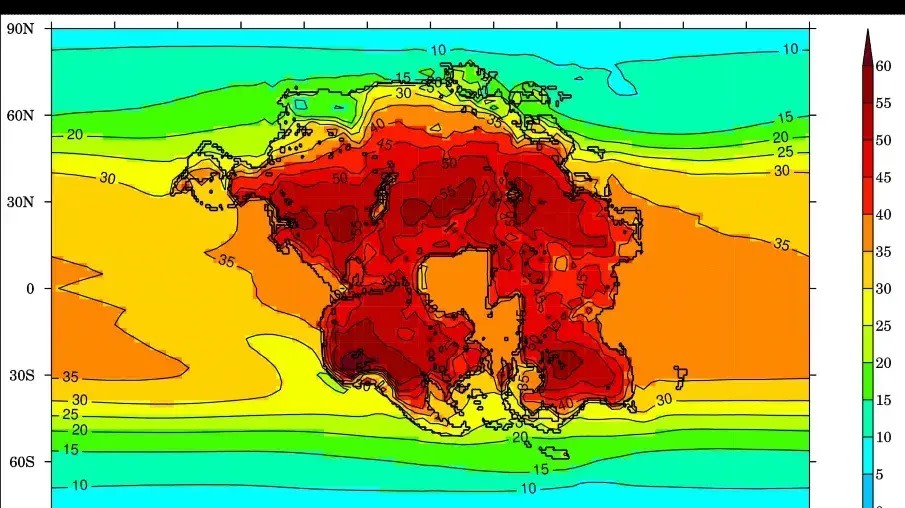The day when all of humanity will cease to exist on Earth has been unveiled, along with the sole means of averting Armageddon.
Researchers from the University of Bristol in the United Kingdom compiled a computer-generated report that reveals precisely when humans will face extinction on our planet. While this grim forecast won't materialize in the immediate future, but rather in a distant 250 million years, it comes with a foreboding caution.
Humanity's demise to be caused by surging temperatures
The study's lead author, Dr. Alexander Farnsworth, from the University of Bristol, contends that humanity's demise will be caused by surging temperatures and extreme heat. Nevertheless, this heat will pave the way for the emergence of a supercontinent, accompanied by "frequent volcanic eruptions."
The outlook for the distant future appears exceedingly bleak, Farnsworth has said.
Carbon dioxide levels could reach twice the current levels, as the sun is also anticipated to emit approximately 2.5% more radiation, and the supercontinent will predominantly occupy hot and humid tropical regions. Consequently, a substantial portion of the Earth may experience temperatures ranging from 40 to 70 degrees Celsius. The new supercontinent that forms will pose a triple threat, featuring the continent effect, an intensified solar output, and an elevated concentration of carbon dioxide in the atmosphere. Simultaneously, most of the planet will be plagued by scorching heat, resulting in a largely inhospitable environment bereft of sustenance and hydration for mammals, he explained.
Average temperatures between 40 and 50 degrees Celsius, and even higher daily temperature extremes, coupled with elevated humidity levels, will ultimately seal humans' fate, the professor continued.
Humans, alongside numerous other species, will vanish from the planet due to their inability to dissipate this heat through perspiration and regulate their body temperature.

So, what can be done?
However, there is a way to avert this catastrophe: Discontinuing the use of fossil fuels. Another expert involved in the report, Professor Benjamin Mills of the University of Leeds, argued that an upsurge in fossil fuel consumption would expedite the end of humanity on Earth, possibly arriving "much sooner than anticipated."
The research was conducted employing the most advanced climate models ever generated by supercomputers to illustrate how climate extremes will intensify dramatically when the world's continents eventually amalgamate to form an arid, uninhabitable supercontinent.
